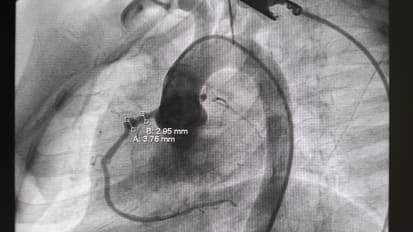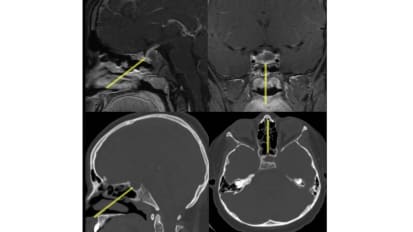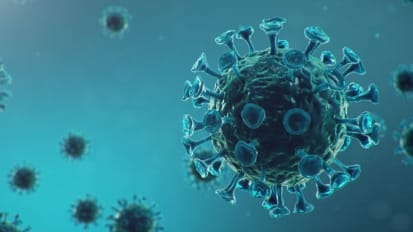Search Videos and More
 Video
Video
Tiny Tykes With Tender Testes: How to Manage Common Scrotal Issues in Pediatrics
This guide from pediatric urologist Yi Li, MD, presents diagnostic steps and treatment options for conditions including undescended testes, hydroceles, hernias, and the range of problems that can cause acute groin pain in young patients. Video
Video
Sleep Like a Baby: The Latest Approaches to Obstructive Sleep Apnea in Children
Sleep apnea is the most common sleep disorder in childhood and even mild OSA can affect neurocognitive function, so prompt and fitting care is essential. Video
Video
The Puzzles of Adolescent Hip Pain: How to Identify Common Conditions
Pediatric orthopedic surgeon Michael M. Chau, MD, PhD, allows that differentiating causes of hip pain in patients ages 10 to 19 can be a challenge, so his presentation guides primary care providers through workup steps (including which X-rays are needed) and initial treatment strategies. Video
Video
The Neonatal Cardiovascular Center of Excellence: Optimizing Support for Tiny Hearts
Martina A. Steurer, MD, MAS, a cardiac intensivist for neonates, discusses challenges and solutions in the treatment of premature and low-birth-weight infants with heart disease, describing how care has evolved and offering informative data on surgical outcomes related to gestational age. Video
Video
TV, Video Games and Social Media, Oh My! Risks of Excess Screen Use and How to Protect Kids
With screen time essentially doubling during the pandemic, kids and their parents need guidance to get back to healthier habits. Video
Video
Minimally Invasive Technique Eradicates Recurring Pituitary Abscess
In this intraoperative video, watch UCSF neurosurgeons Ezequiel Goldschmidt, MD, PhD, and Peter Sun, MD with Patricia Loftus, MD, from the Otolaryngology Department surgically evacuate a sellar abscess of the pituitary gland in a pediatric patient. Video
Video
Prenatal Genome Screening: Understanding Options, Interpreting Results
In this talk, perinatologist Annalisa Post, MD, discusses the information that various prenatal genetic tests can and can’t provide, and how to assess accuracy, offering a valuable tool for individualizing results. Video
Video
The Allure of European Formulas: How to Steer Parents to Safe Choices
Last year's infant formula shortage combined with a widespread mistrust of U.S. food standards has heightened interest in European options, but are they better – or safe? Video
Video
Overcoming Obesity in Childhood: New Advice and Treatment Options
Pediatric gastroenterologist and obesity expert Patrika Tsai, MD, MPH, presents major points from the American Academy of Pediatrics’ 2023 guidelines on care of overweight and obese children, including how to assess the condition's severity. Video
Video
Sorting Out Seizures: An Expert’s Update for Pediatricians
In this fast-paced guide, pediatric neurologist Jennifer Yuen, DO, makes sense of the many seizure types and epilepsy syndromes, so that primary care providers can efficiently reach a likely diagnosis and determine which patients need a workup... Video
Video
Prepping for Fall’s Viral Fallout: New Vaccines and Other Updates on COVID, Influenza and RSV
This talk provides answers to the questions clinicians are starting to hear every day, including how worried to be about current COVID cases, when the latest COVID vaccines will be available, and whether they’ll work better against upcoming variants. Symposium
Symposium
Inaugural Dr. Abraham Rudolph Symposium: Perinatal Cardiovascular Physiology
This symposium honored Abraham M. Rudolph, MD and showcased his significant contributions to the field of congenital heart, from prenatal detection to advancements in neonatal cardiac and neurodevelopmental care.

